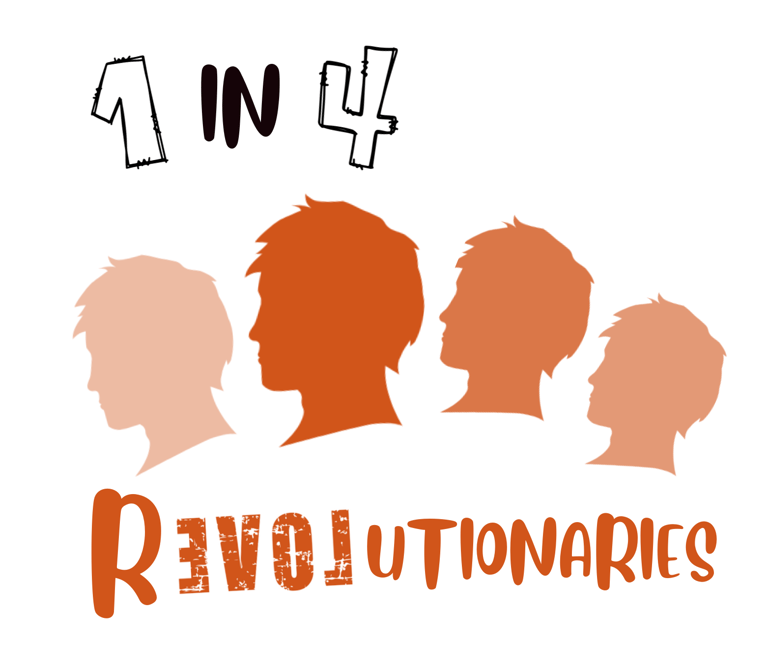JARGON BUSTER 'G'
GAD – See GENERALIZED ANXIETY DISORDER
GAY - A man who has an emotional, romantic and/or sexual orientation towards men. It's also used as a generic term for lesbian and gay sexuality and, some women define themselves as gay, rather than lesbian.
GDPR – See GENERAL DATA PROTECTION REGULATION
GENDER DYSPHORIA - When a person experiences discomfort or distress because there's a mismatch between their sex assigned at birth and their gender identity. It's also a clinical diagnosis for someone who doesn’t feel comfortable with the gender they were assigned at birth.
GENDER EXPRESSION - How a person chooses to outwardly express their gender, within the context of societal expectations of gender. A person who does not conform to societal expectations of gender may not, however, identify as trans.
GENDERFLUID - Someone whose gender identity is not static. It may move between male, female, agender, non-binary, or any other gender identity and expression.
GENDER IDENTITY - A person’s innate sense of their own gender, whether male, female, non-binary (see below), or something else. This may or may not correspond to the sex assigned at birth.
GENDER REASSIGNMENT (or GENDER CONFIRMATION) - A way of describing a person’s transition, usually meaning to undergo some sort of medical intervention. It can also mean changing names, pronouns, dressing differently and living in their self-identified gender. Please Note - GENDER REASSIGNMENT is a characteristic that is protected by the Equality Act 2010, and it is further interpreted in the Equality Act 2010 approved code of practice. It is a term of much contention and is one that Stonewall's Trans Advisory Group feels should be reviewed.
GENDER RECOGNITION CERTIFICATE - This enables trans people to be legally recognised in their affirmed gender and to be issued with a new birth certificate. Not all trans people will apply for a GRC and you currently have to be over 18 to apply. You do not need a GRC to change your gender markers at work or to legally change your gender on other documents such as your passport.
GRC – See GENDER RECOGNITION CERTIFICATE
GENDER QUEER - An umbrella term which refers to non-normative gender identities and expressions, i.e; those who identify in way other than male or female. It is often used in conjunction with, or as an alternative to, non-binary.
GENERAL DATA PROTECTION REGULATION (GDPR) - Rules about how people’s personal information – like their name, contact details and information about their health – can be gathered, stored and used. The rules aim to keep people’s personal information safe.
GENERALIZED ANXIETY DISORDER - It's normal to feel anxious from time to time, especially if your life is stressful. However, excessive, ongoing anxiety and worry that are difficult to control and interfere with day-to-day activities may be a sign of generalized anxiety disorder. It's possible to develop generalized anxiety disorder as a child or an adult. Generalized anxiety disorder has symptoms that are similar to panic disorder, obsessive-compulsive disorder and other types of anxiety, but they're all different conditions. Living with generalized anxiety disorder can be a long-term challenge. In many cases, it occurs along with other anxiety or mood disorders. In most cases, generalized anxiety disorder improves with psychotherapy or medications. Making lifestyle changes, learning coping skills and using relaxation techniques also can help.
GENERAL PRACTITIONER - A doctor who has taken extended training in community care and treatment.
GILLICK COMPTENCY AND FRASER GUIDELINES – These guidelines help people who work with children to balance the need to listen to children's wishes with the responsibility to keep them safe. When practitioners are trying to decide whether a child is mature enough to make decisions about things that affect them, they often talk about whether the child is 'Gillick competent' or whether they meet the 'Fraser guidelines'. Although the two terms are frequently used together and originate from the same legal case, there are distinct differences between them. Both Gillick competency and Fraser guidelines refer to a legal case from the 1980s which looked at whether doctors should be able to give contraceptive advice or treatment to young people under 16-years-old without parental consent.
GLOBAL MAJORITY - A term that is increasingly used in place of ‘ethnic minority’ and ‘black, Asian and minority ethnic’ or ‘BAME’ to refer to people with African, Asian, Indigenous or Latin ancestry, who comprise approximately 85 percent of the global population.
GP – See GENERAL PRACTITIONER
GRAYSEXUAL - People who experience limited sexual attraction.
GRC – See GENDER RECOGNITION CERTIFICATE
GROUNDING - Grounding in the present moment is a concept associated with mindfulness practices. Grounding involves consciously focusing your attention on your current experience, rather than dwelling on the past or worrying about the future. It’s about anchoring yourself in the “here and now” by engaging your senses and acknowledging your immediate surroundings, thoughts, and feelings without judgment.
GROUP THERAPY - Group therapy brings together people who are experiencing similar difficulties into a group which is facilitated by one or more therapists. Group therapy can offer emotional support, to explore difficulties and as a group work to problem solve these.
GUARDIAN/GUARDIANSHIP - Under section 7 of the Mental Health Act 1983, people aged 16 and over with mental health challenges can be given a guardian to help them, if two doctors say this is needed to protect the person or other people. A guardian could be the person’s local council, or someone else that the local council approves. A guardian has legal powers to tell a person where they must live, to attend appointments, work, training or education at agreed time and places and to let a doctor or other named person see them. A guardian can be appointed to help and supervise people in the community. A guardian could be an organisation (like a local authority) or a person, approved by the local authority.
Get in Touch with us at
admin@1in4revolutionaries.co.uk
Check Out Our New
Social Media Accounts
